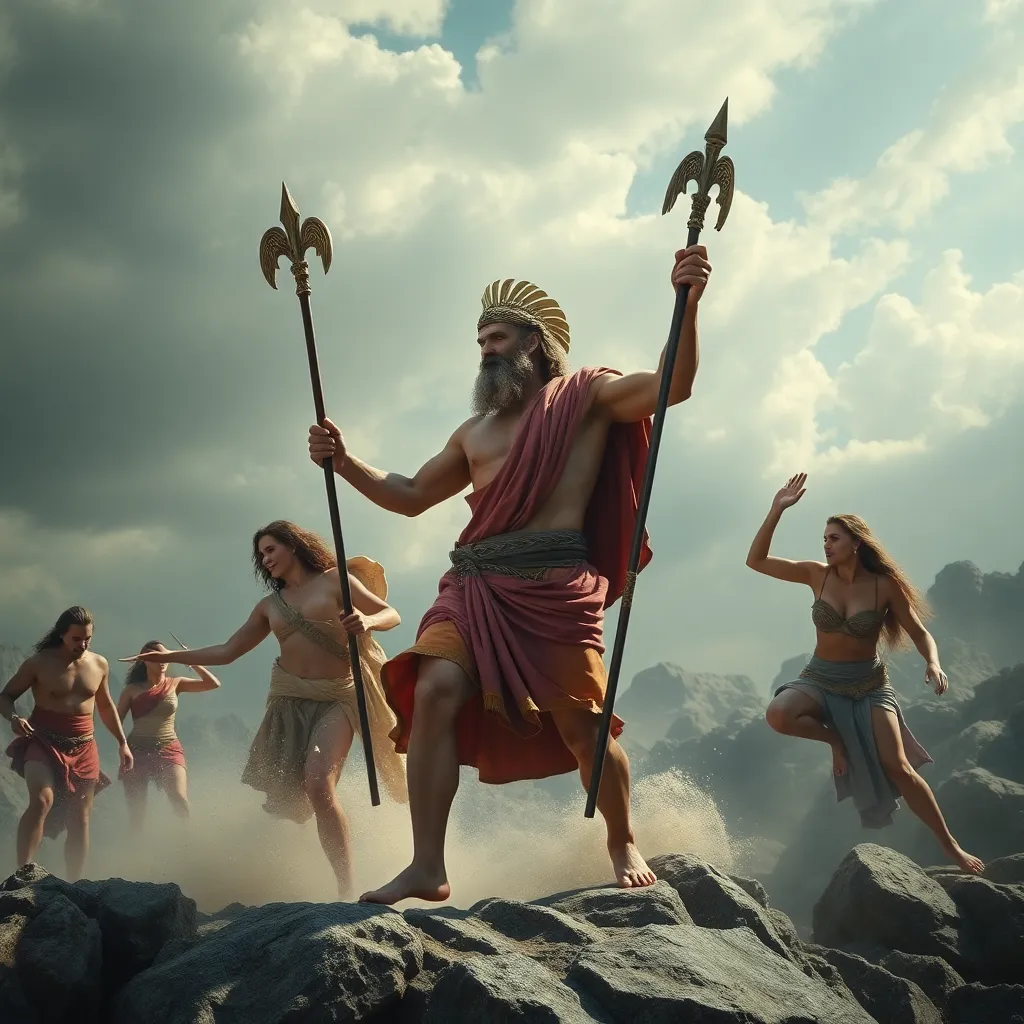Theseus and the Amazons: A Clash of Cultures in Greek Myth
I. Introduction
Theseus stands as one of the most significant figures in Greek mythology, embodying the ideals of heroism and civic duty. His adventures, ranging from slaying the Minotaur to uniting the city of Athens, have been chronicled throughout history, making him a central character in Greek lore.
In contrast, the Amazons represent a fascinating and complex symbol of female empowerment, characterized by their warrior culture and matriarchal society. These fierce women challenge traditional gender roles, creating a compelling juxtaposition to the male-dominated world of ancient Greece.
This article explores the interactions between Theseus and the Amazons, revealing how their encounters illuminate the cultural tensions and contrasts between the patriarchal Greek society and the autonomous Amazonian tribes.
II. The Mythological Background of Theseus
Theseus’s origins are steeped in myth, born to Aegeus, king of Athens, and Aethra. His journey to adulthood is marked by numerous adventures that showcase his strength and cunning. He is renowned for:
- Defeating the Minotaur in the labyrinth of Crete.
- Overcoming various bandits and monsters on his way to Athens.
- Establishing democratic principles in Athens and uniting the surrounding communities.
Theseus’s significance extends beyond his individual exploits; he embodies the values of Athenian culture, such as bravery, intelligence, and civic responsibility. His stories often reflect key themes, including:
- Heroism and the quest for identity.
- The evolution of societal values and governance.
- The duality of human nature, showcasing both noble and flawed traits.
III. The Amazonian Culture
The Amazons are depicted in various ancient texts as a tribe of fierce warrior women, often believed to have originated from the regions near the Black Sea. Their characteristics include:
- Exceptional combat skills and a strong warrior ethos.
- A society organized around female leadership and matriarchal values.
- Myths that often feature their interactions with male heroes, highlighting their independence and strength.
In Amazonian culture, women are not only warriors but also leaders and decision-makers. They challenge the norms of Greek society by:
- Participating in battles alongside men.
- Possessing autonomy in their personal and communal lives.
- Revering female deities and engaging in unique spiritual practices.
The significance of Amazonian myths in Greek literature cannot be overstated, as they provide a counter-narrative to the traditional male hero archetype, offering insights into gender dynamics and societal structures of the time.
IV. The Encounter between Theseus and the Amazons
The encounter between Theseus and the Amazons, particularly the abduction of Hippolyta, queen of the Amazons, serves as a focal point for understanding the cultural implications of their interactions. The context of their meeting is steeped in political tension, as Theseus’s actions can be seen as a reflection of Athenian expansionism.
The motivations behind the abduction of Hippolyta are complex, encompassing themes of desire, power, and conquest. Theseus seeks to assert dominance over the Amazons, symbolizing the broader struggle between male and female power structures. The consequences of this encounter are far-reaching, impacting:
- The perception of the Amazons in Greek mythology, often reducing them to mere objects of desire or conquest.
- The societal implications of Theseus’s actions, reinforcing the patriarchal norms that dominated ancient Greece.
Interpreting the encounter reveals a significant power dynamic, where Theseus’s triumph over Hippolyta represents the subjugation of a powerful female figure, reflecting the cultural perceptions of gender roles during that era.
V. The Symbolism of the Conflict
The clash between Theseus and the Amazons symbolizes the broader conflict between male and female power structures in ancient Greece. This conflict is represented in various forms of Greek art and literature, including:
- Vase paintings depicting the battles between Greek heroes and Amazon warriors.
- Dramatic works that explore themes of power, gender, and identity.
Moreover, the representation of the Amazons in Greek mythology often emphasizes their strength and autonomy, challenging the traditional roles assigned to women. The cultural significance of this conflict lies in:
- The shaping of gender roles in ancient narratives.
- The reflection of societal anxieties regarding female empowerment.
- The influence of these myths on later interpretations of gender dynamics.
VI. The Aftermath of Theseus’s Encounter with the Amazons
The aftermath of Theseus’s encounter with the Amazons has profound implications for both his legacy and the narrative of the Amazons themselves. For Theseus, his actions solidify his status as a hero in Athenian culture, reinforcing the values of bravery and dominance.
Conversely, the repercussions for the Amazons are significant. Their narratives evolve, often depicting them as defeated or subjugated figures, which transforms their representation in subsequent myths. This evolution reflects how myths adapt over time, influenced by:
- Changing societal values and perceptions of gender.
- The need to conform to the dominant narratives of male heroism.
These shifts in mythology suggest a complex relationship between culture and narrative, highlighting the relevance of these stories in understanding historical gender roles.
VII. Modern Interpretations and Relevance
In contemporary media, the portrayal of Theseus and the Amazons has undergone significant reinterpretation, often highlighting the themes of gender dynamics and cultural conflict. Modern adaptations frequently explore:
- The complexities of power relationships.
- The strength and resilience of female characters.
These myths continue to inform current discussions around feminism and power, prompting reflections on:
- The representation of women in mythology and its impact on modern gender narratives.
- The relevance of ancient stories in contemporary society, particularly in the context of social justice and equality.
VIII. Conclusion
The cultural clash exemplified by the interactions between Theseus and the Amazons serves as a powerful narrative in understanding the complexities of gender roles in ancient Greece. These myths reflect the societal values of their time and provide insights into the historical struggles for power and identity.
In conclusion, the legacy of Theseus and the Amazons endures in modern culture and literature, prompting ongoing discussions about gender dynamics and societal structures. Their stories challenge us to reconsider the narratives we inherit and the values they represent.




